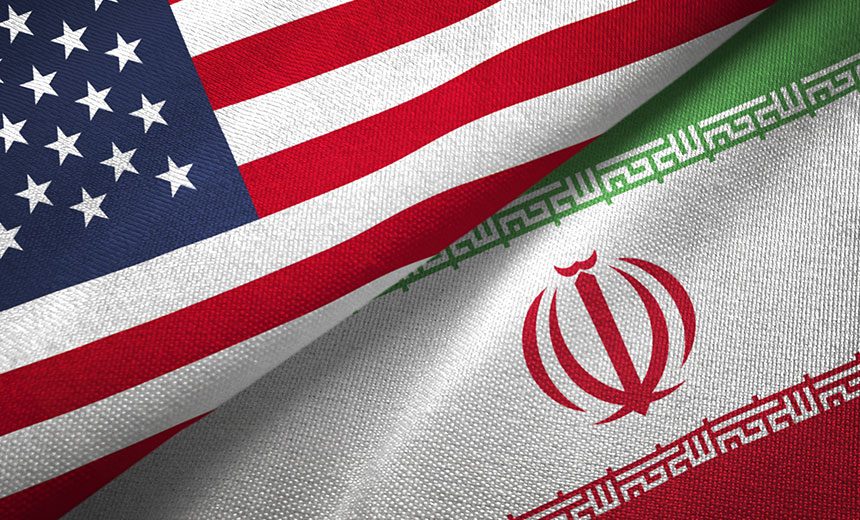The impasse between Iran and the US over returning to the Vienna nuclear talks seems to drag on even though both sides are keen on negotiating. Washington and Tehran may have equally valid concerns but too much time has been wasted due to lack of trust and the inability of the negotiators to find new answers to old questions.
Over the past two weeks, there have been endless sets of meetings all aimed at finding a way of bringing Iran back to Vienna for talks with the US, albeit through intermediaries. The latest was on Friday when the US special envoy for Iran, Rob Malley, met British, French and German diplomats in Paris to discuss stalled efforts.
One week earlier, European Union Political Director Enrique Mora travelled to Iran for a meeting with Iran’s new hardline negotiator, Ali Baqeri-Kani. They talked for several hours but the result was added tension. On the same day the US Secretary of State, Anthony Blinken, met with his Israeli and Emirati counterparts in Washington as Malley travelled to Saudi Arabia, UAE and Qatar for talks on the JCPOA.
Malley and Blinken were hoping to create new regional dynamics that would change Iran’s attitude. But these efforts are based on a miscalculation on their part: Iran is not impressed when its archenemy, the US, tries to fix its relations with its lesser enemy, Saudi Arabia. In that trip Malley had encouraged talks between Iran, Saudi Arabia and the UAE hoping it would lead to “de-escalation.”
“The Iran deal is dead,” headlined the Washington Post. “With no clear diplomatic option or any real prospect of returning to a pressure-based strategy,” said columnist Josh Rogin, “the Biden administration doesn’t appear to have any realistic alternatives ready”.
The flurry of diplomatic activity did not persuade Iran to return to Vienna. After two weeks, Iran dismissed the idea saying talks will only continue in Brussels with Enrique Mora, who is acting as the go-between.
Most speculation was that by playing tough, Iran’s new hardline administration was asserting its authority, but it later became clear that the real cause was President Joe Biden’s refusal to keep sanctions lifted while he is in office “even if Iran rejoins and complies with the nuclear deal”.
Russia backed Iran saying the unreliability of having sanctions lifted could have serious consequences for Iran’s economy as trade and investment would always be threatened by the dagger of sanctions.
Despite its anger, Iran has not rejected Vienna talks outright, saying it will “proceed after assessing the challenges that have arisen in the past six rounds”.
Iran sees itself as the victim of Trump’s sudden departure from the JCPOA in 2018 and the ensuing heavy sanctions which have devastated its economy. It believes that scenario must never be repeated. As a first step it demands all Trump-era sanctions be lifted.
Rob Malley agrees with the premise. He says all the Trump-era sanctions, which are “inconsistent with the JCPOA, would be lifted very quickly”. But the key is in the word “inconsistent,” since hundreds of sanctions will remain due to human rights issues and Iran’s missile program. Secretary Blinken admitted this to a Senate committee:
“I would anticipate that even in the event of a return to compliance with the JCPOA, hundreds of sanctions will remain in place, including sanctions imposed by the Trump administration,” he said.
Iran sees all the Trump era sanctions as “inconsistent” with the JCPOA. Additionally, it is weary of the Western plan for a “longer and stronger” deal.
Iran has survived the worst of sanctions, and seen its top military and nuclear officials assassinated. It believes there is little the US could add short of the rhetorical “other options”.
So far the US has not convinced Israel, Saudi Arabia, or the UAE. They remain firmly opposed to returning to the deal, and the US refusal to continue supporting the Saudi war in Yemen has brought little change on the ground in terms of loyalties.
The rising tension between the US and other major signatories to the JCPOA works in Iran’s favor, too. Russia and America are at loggerheads over Ukraine with Russia breaking ties with NATO. On the other hand, Beijing and Washington have raised military rhetoric over Taiwan, and continue with trade wars.
America’s failure in Afghanistan has also dipped international trust in the Biden administration, and this too, strengthens Iran’s anti-US rhetoric.
So, it appears that President Biden must ensure a solution is found soon. Otherwise, as predicted, his dithering will make the nuclear deal unsalvageable and this would be seen as his second major international failure in less than a year in office.
It would let loose a rebellious hardline regime with the “largest and missile arsenal in the Middle East,” to continue enriching uranium beyond 63 percent, with the potential to produce nuclear warheads, while opting out of the NPT.
*The writer is a Research Associate at the London School of Economics and Political Science and the School of Oriental and African Studies specializing in Iran and Afghanistan.
October 27, 2021
The viewpoints expressed by the authors do not necessarily reflect the opinions, viewpoints and editorial policies of Aequitas Review.


